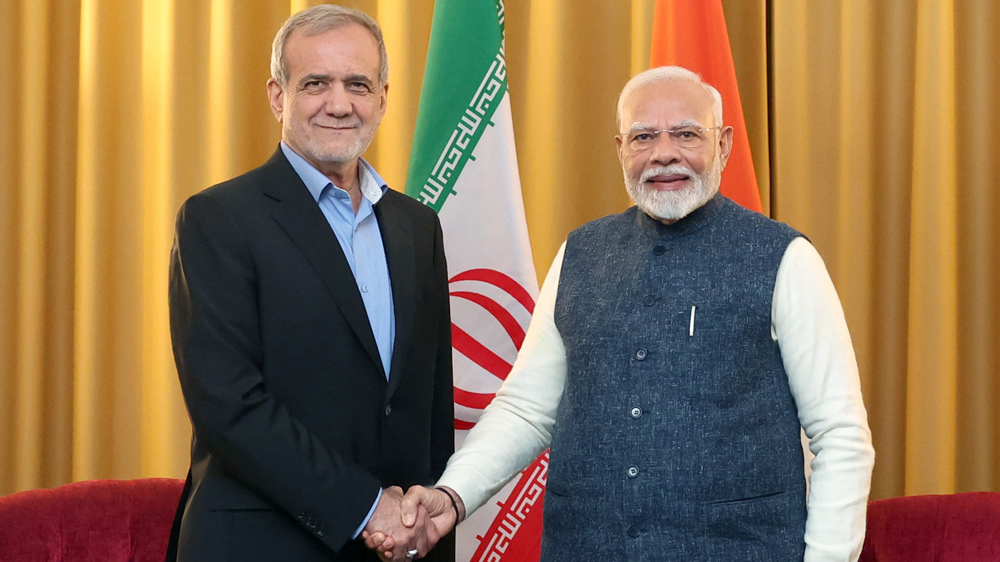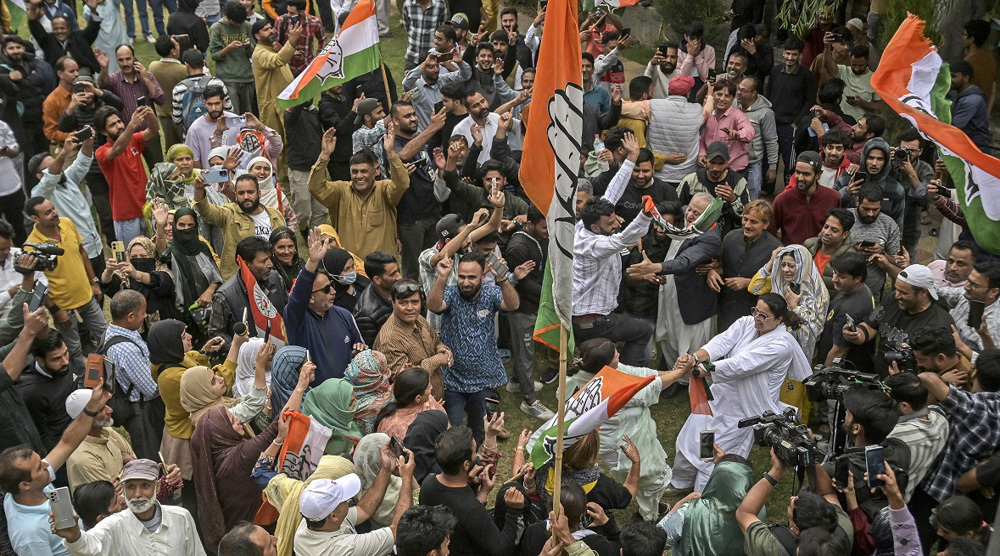Indian premier holds emergency meeting over anti-govt. protests in Kashmir
Indian Prime Minister Narendra Modi has held an emergency meeting to discuss intensifying violence in Kashmir after nearly 30 people were killed in protests over the killing of a popular rebel leader.
India’s Minister of State Jitendra Singh said Modi has "appealed to the people of Jammu and Kashmir to maintain calm and peace so that normality returns in the valley.”
The emergency meeting was attended by ministers of home affairs, external affairs, finance, defense, along with the national security adviser and senior security officials.
“Soon after returning from his four-nation tour on Tuesday morning, Prime Minister convened the high-level meeting. This is evidence that he was keeping a close tab on the situation of Jammu and Kashmir,” Singh further said.
He said Modi has promised to provide any assistance to the violence-hit state and hoped that innocent people should not face inconvenience.

The clashes came after residents of Kashmir held a funeral for separatist Burhan Wani, the young leader of Hizbul Mujahideen (HM), who was killed on July 8 along with two other people during a brief gun battle with government forces.
During the past five years, Wani had become the iconic face of militancy in Kashmir, using social media to reach out to young people in the region.
Wani’s body was handed over to his family earlier on Saturday and the locals, who see the slain 22-year old as a hero, turned the mass funeral into a full-scale protest.
According to Indian police, anti-riot troops used live ammunition, pellet guns and tear gas to disperse the crowds and calm down the outrage. Authorities have also suspended mobile networks and the internet to prevent massive demonstrations.
So far, at least 28 people, most of whom teens and young men, were killed and hundreds of others sustained injuries in the clashes. One policeman has also been killed in the clashes and nearly 100 others wounded.

Meanwhile, former chief minister of Jammu and Kashmir Omar Abdullah called on Modi in a tweet to send optometrists to Kashmir, where, according to local doctors, hundreds of young people risk losing their eyesight due to wounds from pellets fired by security forces.
For the past few days, Indian authorities imposed a curfew to the whole Kashmir valley, including the major city of Srinagar to curb the protests. The protesters, however, openly defy the curfew and continue with their rallies.
Kashmir, a Himalayan region known for its beautiful landscapes, lies at the heart of more than 69 years of hostility between India and Pakistan.
Both neighbors claim the region in full but have partial control over it. India controls two thirds of Kashmir while the remaining one third is under the Pakistani rule.
The neighbors agreed on a ceasefire in 2003, and launched a peace process the following year. Since then, there have been sporadic clashes, with both sides accusing the other of violating the ceasefire.
Thousands of people have been killed in the violence in Kashmir over the past two decades.
VIDEO | Press TV's news headlines
Iran FM: Response to Israeli aggression 'inevitable'
VIDEO | Iran eases the rules for exporting hand-woven carpets
VIDEO | Intl. Day for the Elimination of Violence against Women: A stark reminder of Gaza women
Australia denies ex-Israeli minister Shaked visa
VIDEO | 85% of Yemeni displaced people face daily hunger crisis
US House passes bill targeting charities and pro-Palestine groups
VIDEO | Supporting Gaza genocide












 This makes it easy to access the Press TV website
This makes it easy to access the Press TV website